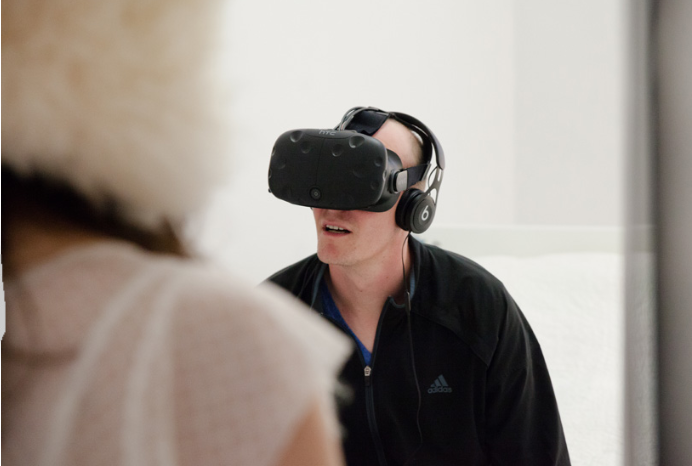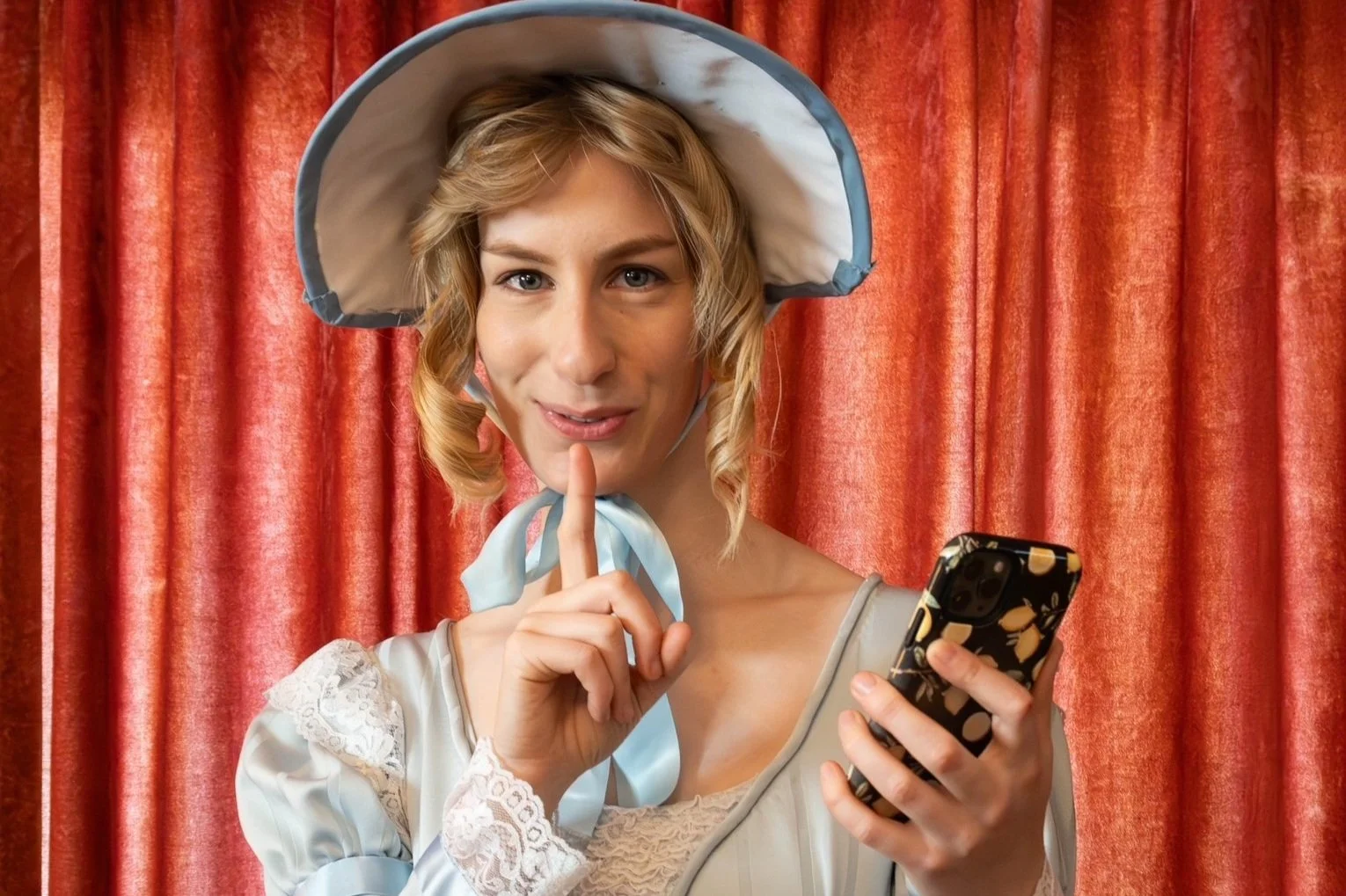PuSh Festival: Through VR and live theatre, VIOLETTE brings rarely discussed subjects to light
The one-on-one work by Montreal’s Joe Jack et John confronts consent and sexual assault among neurodivergent women
Stephanie Boghen in VIOLETTE. Photo by Michel St-Jean/Caroline Lambert.
PuSh International Performing Arts Festival presents VIOLETTE by Joe Jack et John from January 26 to 30 at the Roundhouse Community Arts and Recreation Centre, supported by Théâtre la Seizième, RealWheels, and Roundhouse Community Arts and Recreation Centre.
THE #MeToo movement was a wake-up call for many regarding the prevalence of sexual assault. What’s still not as widely discussed is how consent and sexual violence affect and relate to women who live with an intellectual disability—women who have a much higher lifetime prevalence of experiencing sexual abuse than those who don’t.
Montreal’s Joe Jack et John aims to raise awareness of the issues with VIOLETTE, an interdisciplinary piece it’s bringing to the 2022 PuSh Festival. The creative team consists exclusively of women, three of whom are actors with an intellectual disability.
On the line from Quebec, JJJ co-founder Catherine Bourgeois, the company’s artistic and executive director, explains that the genesis of the work predates #MeToo—going as far back as the company’s very beginnings 18 years ago, in fact. Since forming, JJJ has sought to elevate marginalized voices and has hired neurodivergent artists—not necessarily to focus specifically on issues related to disability in its works but simply to have the demographic represented on-stage and -off. In other words, the organization prioritized inclusivity long before inclusion was on many people’s radar.
“The company’s mandate has always been to work with actors from different backgrounds and neurodivergent actors,” says Bourgeois, a member of Women for Equity in Theatre and the steering committee of the Feminist Workcamp. “The first few years of the company were rough, even until four or five or six years ago. It took many years before we were recognized or even selected for grants. There was quite a bit of prejudice. I would think that putting forward the idea that neurodivergent artists can be professional artists and are professional artists… Sometimes just that felt like pushing it too hard. Eighteen years ago, this humanistic approach was not there. We’re getting there, but there’s still a long way to go, and for us, for me, our richness comes from our differences. We don’t want everybody to be thinking the same thing, to have the same perspective, the same point of view.
“In general, sexuality of people with a disability is not really a subject that’s very common,” adds Bourgeois, who has worked as assistant to choreographer Margie Gillis and taught at the National Theatre School of Canada. “We talk about sexuality of elderly people or youth, but I felt there was a necessity to tell a story I’ve been hearing for many years collaborating who colleagues who are neurodivergent—that was the starting point.”
If JJJ is progressive in its operations as a whole, VIOLETTE is similarly forward-thinking in its approach. The intimate piece for one actor fuses virtual reality with live theatre in a pandemic-friendly format for an audience of one.
During its first incarnation in 2018, VIOLETTE was a site-specific work that took place in Bourgeois’s own apartment, her bedroom converted into the set. The lone audience member would ring the buzzer, as if they were going to a real person’s home. From there, they donned the VR headset, guided by Violette along the journey.
Even in a theatre setting, there’s an element of risk for both viewer and performer. “We ask the spectator to be a bit adventurous, and at the same time there’s this idea as well of Violette opening the door and letting someone in,” Bourgeois says.
“The abuse is not covered in a graphic way,” she adds. “Our take on it is because of the traumatic experience, Violette shut down a bit her activities, and is living quite secluded in her room, inviting people to come and visit her. She shares her story so she can get through it, past it. There’s this act of sharing of a story, of sharing a trauma, a dark secret, as well as a ritual for enlightenment and for liberation or freedom.”
VIOLETTE is for an audience of one. Photo via Joe Jack et John.
Through the 360-degree effects of VR, all sorts of fantastical images and scenes appear, like gently falling snow, dreamy forests, and a trickster in the form of a crow or a shadow puppet. Bourgeois loves the way the technology allows you to enter new worlds or put yourself in someone else’s shoes, while noting that if anyone’s concept of VR is the kind of entertainment you can pay for at a mall, this is not a format that resembles a video game. Once the audience member enters Violette’s room, they’re seated. Vancouver viewers have the choice of experiencing VIOLETTE, written by Amélie Dumoulin, in either French, performed by Anne Tremblay, or English, by Stephanie Boghen. (And there’s a long list of sanitation measures in place, including the VR headset being sterilized after each use with a Cleanbox, a lab-tested device that uses UVC light to kill viruses.)
Ultimately, Bourgeois hopes that VIOLETTE will open people’s eyes to others’ pain, experience, or existence, ideally to create positive change, one little bit at a time.
“We’re doing social work through art,” she says. “Not to say we’re doing therapist’s work; we’re doing artistic work, pure artistic work, and yet we’re trying to move society along the way with difficult subjects.
“I think of it as cultural acupuncture,” she adds. “Change takes a long time. Hopefully, with this group of neurodivergent and non-neurodivergent artists, everybody will start opening their minds and their ears and their hearts to different realities and ways of looking at things.”
For more information, see PuSh Festival.















